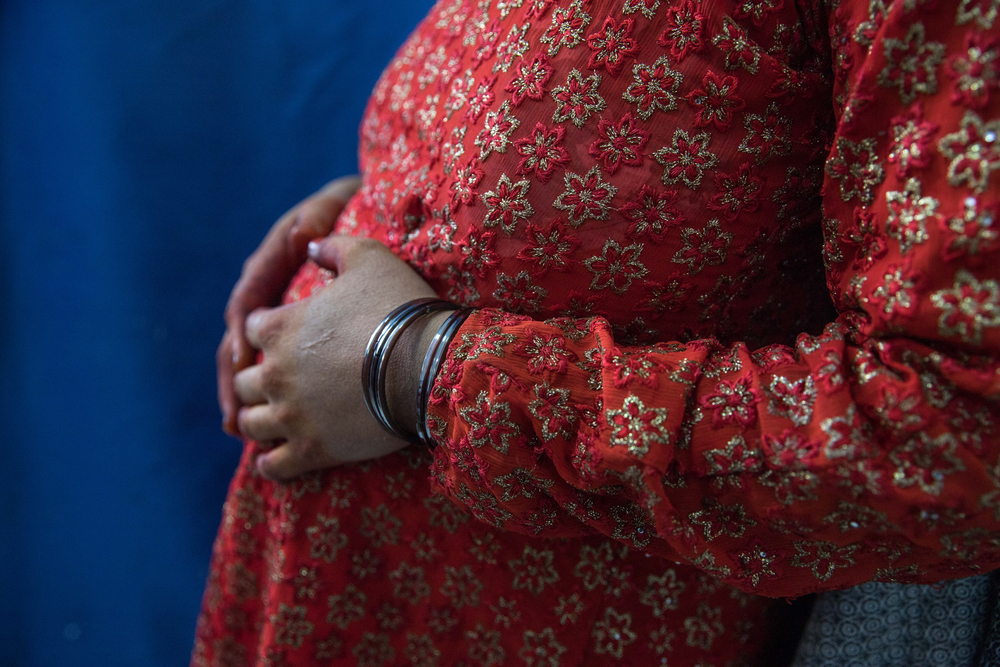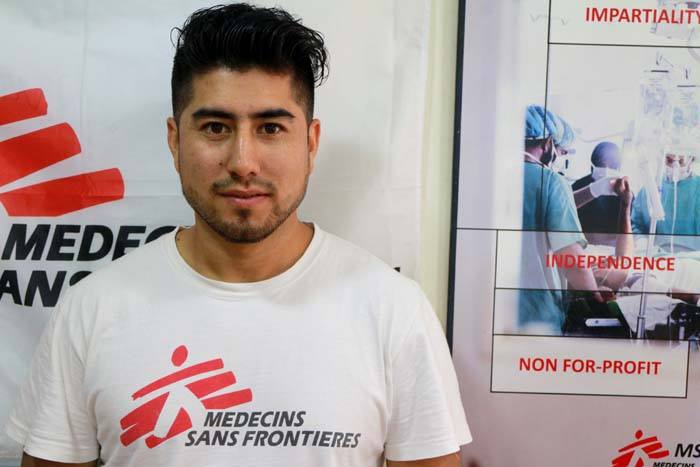First-person: Afghanistan
Afghanistan has one of the world’s highest rates of pregnancy and childbirth-related deaths. Since 2009, a Doctors Without Borders/Médecins Sans Frontières (MSF) team has been working to help safely deliver babies in Boost hospital, Lashkar Gah. But it hasn’t always been this way, says Rahmatullah Ali Jani who works with MSF as a human resources officer.
I was raised near Lashkar Gah city, Helmand province. This is the story of two journeys I made, a couple of years apart but closely connected.
One night in the summer of 2008, I am just falling asleep around midnight when I hear a loud knocking at the door.
My uncle is on the doorstep. “Start the car,” he says, “We have to go somewhere.”
“There is no stretcher, wheelchair or anyone to help.”
I do as my uncle says and start driving through the dark, following his directions. We drive to a poverty-stricken neighbourhood on the outskirts of the city and stop outside a house, where a heavily pregnant woman and a man are waiting for us.
My uncle instructs me to fold down the seats so the woman can lie down.
Soon I’m driving carefully in the dark, along bumpy roads towards the city centre, crossing different checkpoints, answering different questions. An hour and a half later, we arrive at the entrance to a large, dark hospital compound. “What are you doing? Why are you here?” asks the guard. We explain and he waves us inside. It’s difficult to navigate: no driveway, no lights, many trees and fallen branches. Eventually, we find the main building.
A man with an oil lamp approaches and asks why we are there. He points towards a dark hallway. There is no stretcher, wheelchair or anyone to help. Just total silence except the sound of the woman in pain. The building smells of open wounds and alcohol. We walk along the hallway, pressing buttons on our phone for enough light to avoid bumping into walls.
When we reach the maternity department, a woman holding an oil lamp asks why we are here. We lose time explaining. She says, “Wait here, I’ll try to find the midwife on duty.” She reappears, telling us the midwife is not in the hospital and she’ll go to the midwife’s house.

Half an hour later they’re back. The midwife greets us nicely and takes the pregnant woman inside. After 10 minutes, she brings us a list of items saying, “In this hospital, we can support the delivery, but we don’t have medication or supplies. You have to purchase everything yourselves from a pharmacy.”
The woman with the lamp asks us, “Why would you bring her to this hospital and not a private clinic? You know there is no infrastructure here.” But a private clinic is unaffordable.
After searching for an hour, we find an open pharmacy and get everything on the list. More supplies are needed through the night and we repeat this trip twice.
In the morning there is good news: the baby is born, and the mother and baby are healthy. There is no postnatal care, so we take them straight home.
A couple of years later, I get a similar phone call but I’m expecting it, knowing my aunt is pregnant. Just as before, it’s nearly midnight when we hit the road.
“Are we in the right place? Are you sure this is the hospital we want to go to?”
Again, the bumpy roads and checkpoints, but upon arrival at the hospital compound, the gate is opened for us and we drive on the paved road to the main entrance.
Instead of total darkness, I see a massive, well-lit white building. I’m shocked. “Are we in the right place?” I ask. “Are you sure this is the hospital we want to go to?”
We enter the building and people give us directions. Some female staff appear with a stretcher and take my aunt inside. One of them explains what will happen next, how long it will take, that it will be safe and I shouldn’t worry.
I barely hear anything she says because I’m so distracted by everything else. It’s midnight but bright as daylight. I’m thinking: “What’s happening? Is this a different place? Am I on a different planet?”
All around me are signs pointing to various departments: emergency, lab, radiology, pediatrics. It’s an amazing experience to see the changes to the hospital, now supported by MSF.
In 2022, there was a change of power in Lashkar Gah. Amid active shooting, fighting and rockets in the city for 10 days, the MSF team was there, treating patients in the basement. On my first visit, many years ago, they faced challenges to deliver one baby. Now, they can deliver more than 2,000 babies every month.
